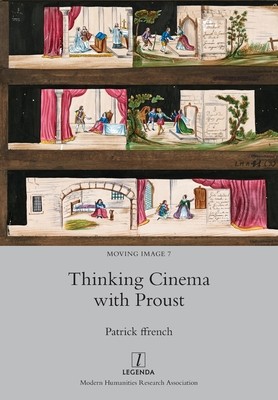
- We will send in 10–14 business days.
- Author: Patrick Ffrench
- Publisher: Legenda
- ISBN-10: 1781886369
- ISBN-13: 9781781886366
- Format: 17 x 24.4 x 1.2 cm, minkšti viršeliai
- Language: English
- SAVE -10% with code: EXTRA
Reviews
Description
How can Proust's A la recherche du temps perdu prompt us to re-imagine the cinema? Although no-one goes to the cinema in the novel, and its narrator is critical of a 'merely' cinematographic account of reality, the proposition of Thinking Cinema with Proust is that the Recherche can provide a powerful catalyst for re-thinking the cinema, and that the 'structural absence' of cinema from Proust's novel is rich in implications. Drawing on a complex terrain of intersections and overlaps between the experience of the spectator and that of Proust's narrator and reader, the book is focused around a series of motifs - reverie, the camera obscura, the magic lantern, projection, gesture and 'screen memory' - which enable a fluid movement back and forth between Proust and film theory.
Patrick ffrench is Professor of French at King's College London.
EXTRA 10 % discount with code: EXTRA
The promotion ends in 23d.16:36:43
The discount code is valid when purchasing from 10 €. Discounts do not stack.
- Author: Patrick Ffrench
- Publisher: Legenda
- ISBN-10: 1781886369
- ISBN-13: 9781781886366
- Format: 17 x 24.4 x 1.2 cm, minkšti viršeliai
- Language: English English
How can Proust's A la recherche du temps perdu prompt us to re-imagine the cinema? Although no-one goes to the cinema in the novel, and its narrator is critical of a 'merely' cinematographic account of reality, the proposition of Thinking Cinema with Proust is that the Recherche can provide a powerful catalyst for re-thinking the cinema, and that the 'structural absence' of cinema from Proust's novel is rich in implications. Drawing on a complex terrain of intersections and overlaps between the experience of the spectator and that of Proust's narrator and reader, the book is focused around a series of motifs - reverie, the camera obscura, the magic lantern, projection, gesture and 'screen memory' - which enable a fluid movement back and forth between Proust and film theory.
Patrick ffrench is Professor of French at King's College London.


Reviews